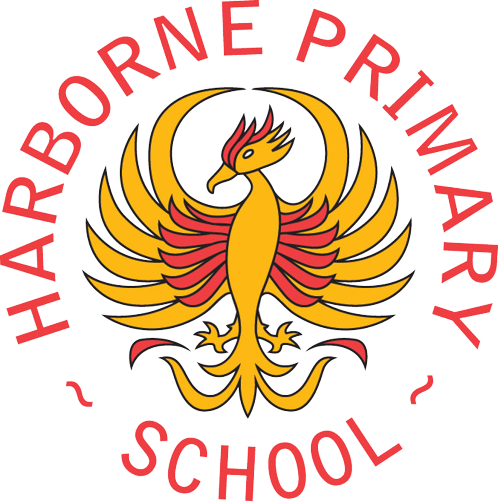
Harborne Primary School
- Home
- Key Information
- Our curriculum is currently undergoing an overhaul. These overviews will be updated shortly.
- English
English
Ofsted Quote:
"Pupils' high-level literacy and numeracy skills are evident in a wide range of subjects."
Our English Leaders are Mrs Oakley and Mrs Killarney.
Our English Link Governor is Ms Harvey-More
English (or Communication, Language and Literacy)
Our aim is to provide children with the necessary skills, whilst encouraging them to develop an enthusiasm for and a love of English as speakers, listeners, readers and writers, which will enable them to access the wider curriculum with confidence throughout their learning journey.
We develop children’s abilities in speaking and listening across the curriculum and encourage them to take an active role in their learning and contribute their own thoughts and ideas. We enable children to develop their use of spoken language and awareness of Standard English. We recognise the importance of developing children’s understanding and use of a wide vocabulary.
We love reading, and we want all of our pupils to love it too. We strongly promote reading for pleasure and children benefit from a variety of book-themed events and good links with our local libraries. As part of our programme of teaching in English, we use a range of quality literature across the school. We have a well-stocked library in school and use ‘choice books’ to encourage children to share books and read widely at home and at school.
We use the Twinkl Phonics scheme to teach children to decode for reading and to recognise tricky (or Common Exception) words. There is a structured but flexible scheme of decodable books for children to read in school and at home. The importance of reading for meaning is central to our teaching in reading, so we focus on reading comprehension at all levels and encourage the development of higher order reading skills, such as inference and deduction.

Our teaching of spelling follows the National Curriculum guidance and this is supported by our use of the Twinkl Phonics scheme and Spelling Shed in KS2. Our teaching of punctuation and grammar follows a careful progression of skills and we use ‘learning codes’ to help children with this. We use the Cambridge Penpals scheme to teach handwriting across the school.

We give children opportunities to write in a variety of different forms for a wide range of purposes and audiences. Writing projects are often linked to the reading of quality literature but also to special events and learning across the curriculum. Children learn to plan and compose their writing and then to edit and improve it. We regularly host AIM High writing days for children in KS2.
We encourage and value the involvement of parents and carers in our children’s learning in English. We communicate information about this through newsletters, leaflets, meetings and special events in school. We encourage learning beyond the classroom by sending home books for reading, spelling lists, handwriting practice and other English activities.